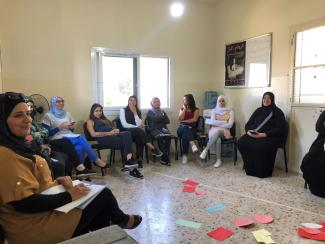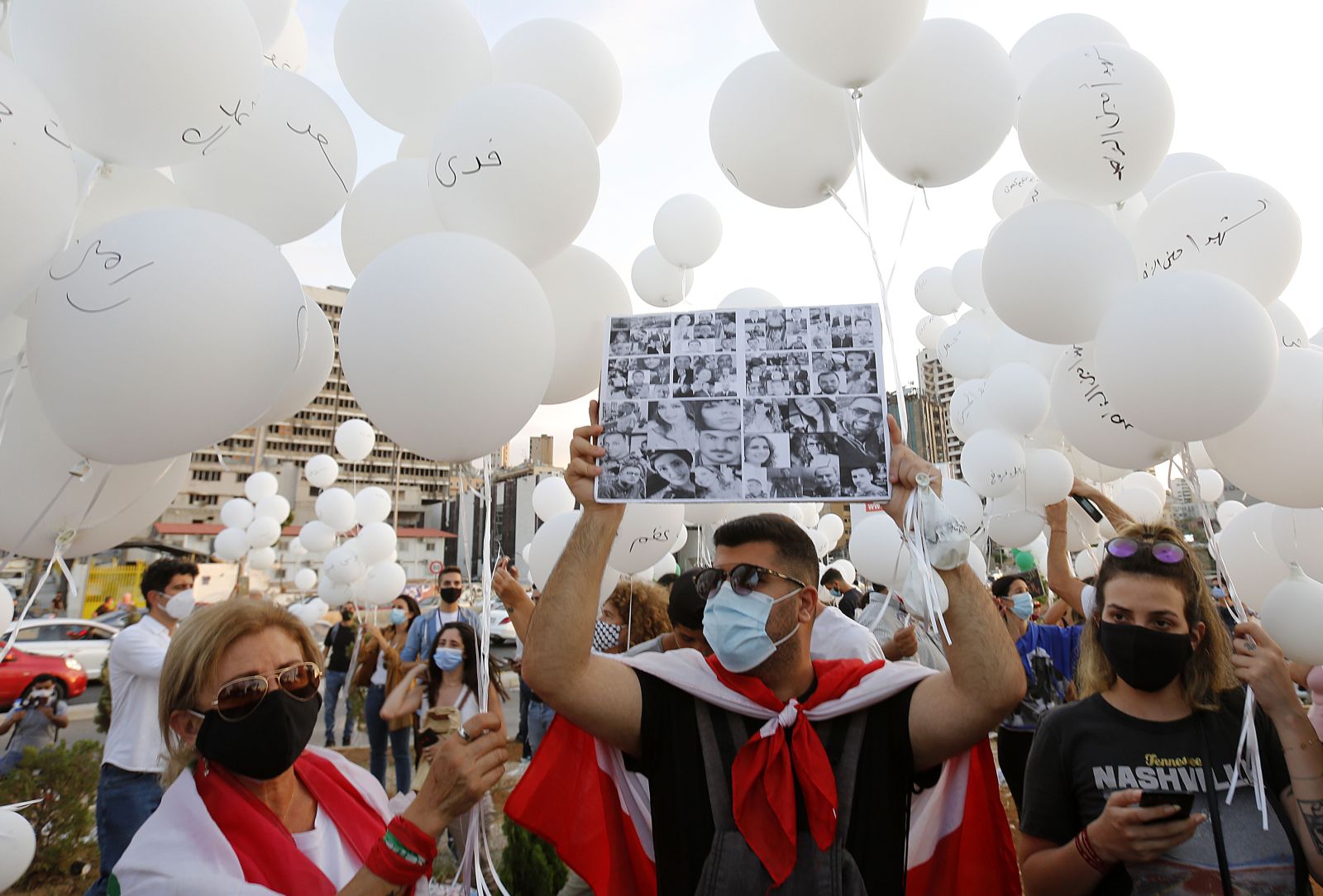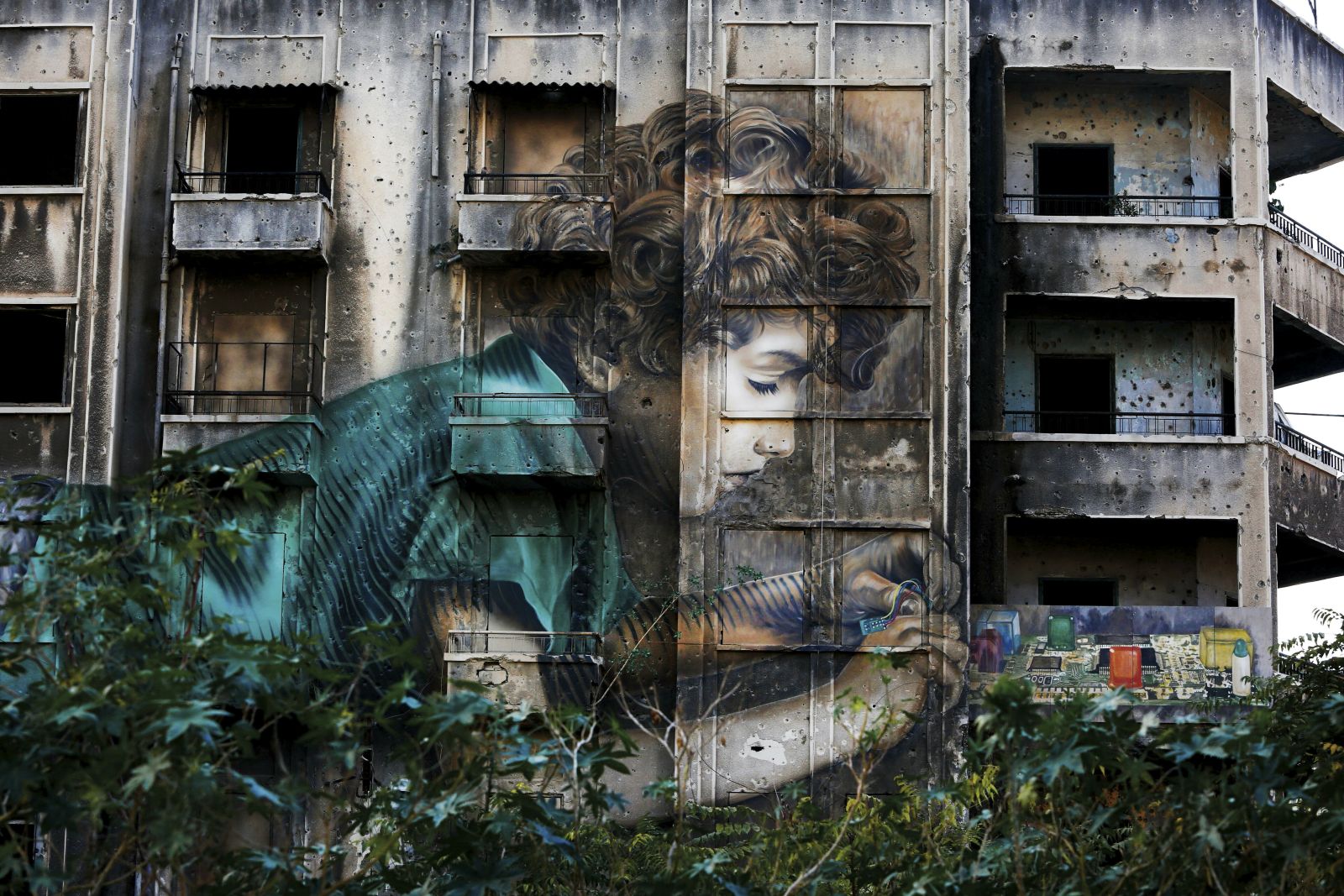Collective memories
Legacy of wounds

The Lebanese civil war, which lasted from 1975 to 1990, left many wounds unresolved and resulted in a fragmented society with deep sectarian divides. The end of the civil war was followed by a collective suppression of memories about the past three decades. The state promoted this process with the hopes of creating a sense of normality. Yet, this primarily numbed the pain but did not deal with the deep wounds of loss, shame and despair.
Collective narratives of victimhood were passed on within fragmented communities. The past remains a taboo for school history books, and an open public discourse has been silenced. Instead, migrants and refugees as well as foreign powers are scapegoated to be the threat to security and the reason for social and political misery. A language of fear and mistrust gave political parties a platform to manipulate collective needs for safety and security.
Recent events of a massive nationwide uprising, which started in October 2019 and is known as the October Revolution, put these realities and heteronomous identities into question. Protesters all across the country called for an end of corruption, clientelism and the lack of accountability after the government had announced new taxes on internet voice calls. The October Revolution led to a collapse of the government while the country has suffered several months at the brink of financial bankruptcy. A divided society – where many had remained silent for so long – was unified by demanding a root-and-branch transformation of the social and political make-up of Lebanon. It was the end of a prolonged period of collective paralysation.
Peace work that responds to trauma
Entire communities can be traumatised by violent conflicts, and the traumas can be passed on from one generation to the next (see box). In Lebanon, collective trauma is obvious. With its projects on “Dealing with the Past”, forumZFD, a German peace organisation working within the Civil Peace Service programme, uses multiperspectivity – the idea that history is interpretational and subjective – to engage people in conversations about the past. It thus contributes to a healing process of collective trauma through understanding how individual and collective identities are influenced by the past.
During its training series “Memory of War”, peace activists from various conflicted communities reflected on collective narratives of identity and mindsets influenced by the consequences of the civil war. In light of events around the October Revolution, the activists explored the importance of a healthy mourning process. This is an important prerequisite to break the deadlock of the mind and body when trauma remains unresolved resulting in collective emotions of fear and despair. The activists got inspired to look at current conflicts in their communities with a multiperspective lens and learned tools to address the past in the present.
Moreover, forumZFD supports teachers across the country and religious communities to learn and teach about the past without deepening divides but rather bridging them. With creative methods, forumZFD and its partner, the Lebanese Association for History, inspire teachers and students to transform the narration of contested historical events and the memorisation of past violence. Besides multiperspectivity, establishing dialogues with older generations is an important means.
For instance, the project “From Local History to a Wider Understanding of the Past” initiated transgenerational conversations on daily life during the civil war. After recording these oral histories, students are invited to transform their findings through artistic means and express how these memories relate to their own present life. The project contributes to a cross-generational process of reconstructing and integrating fragmented memories from the past which is an essential element in collective trauma healing.
Another focus of forumZFD aims at encouraging community activism across divides to mobilise for nonviolent action. Together with its partner, The Lebanese Women Democratic Gathering, forumZFD supported the foundation of a women’s cooperation Nisaa Kaderat (Capable Women) with Syrian and Lebanese peace activists. Nisaa Kaderat opened a self-organised community centre that provides a safe space for women of all nationalities and generations in the city of Baalbek. It invites women to find shelter and relief from everyday micro-aggressions against their gender and to practice self-care. Inspired by tools from nonviolent communication, community dialogue and psychosocial support, women meet each other with empathy to transform collective emotions of loneliness, victimhood and shame. The dialogue supports women from different generations to stimulate a transgenerational healing process.
In short, on the one hand, the lens of collective trauma can be integrated into the work of conflict transformation. On the other hand, group-building processes create an atmosphere of empathy where individual experiences can be processed with the support of the group and collective learning processes can be facilitated.
Thus, if conflict transformation is sensitive to the psycho-social dynamics of collective trauma, it strengthens the resilience on an individual and collective level. It thereby transforms the health-promoting tools to strengthen resilience and positive coping strategies – parallel to other activities – in order to create safe spaces for groups such as women groups or community groups.
It is also important, however, to work on the transformation of shared narratives of the past and of victim identities through media, arts, festivals, exhibitions and digital storytelling platforms, and to transform the enemy image of “the other”. This in turn will help to strengthen a sense of self-efficacy, helping to overcome shared feelings of helplessness and to transform passivity and political apathy into empowerment and agency.
Miriam Modalal is a project manager for community organising at forumZFD, an international non-governmental organisation working in the field of conflict transformation, in Lebanon.
miriam.modalal@gmail.com
Dalilah Reuben-Shemia was a peace and conflict consultant and is a nonviolent action researcher.
d.reuben-shemia@posteo.de










